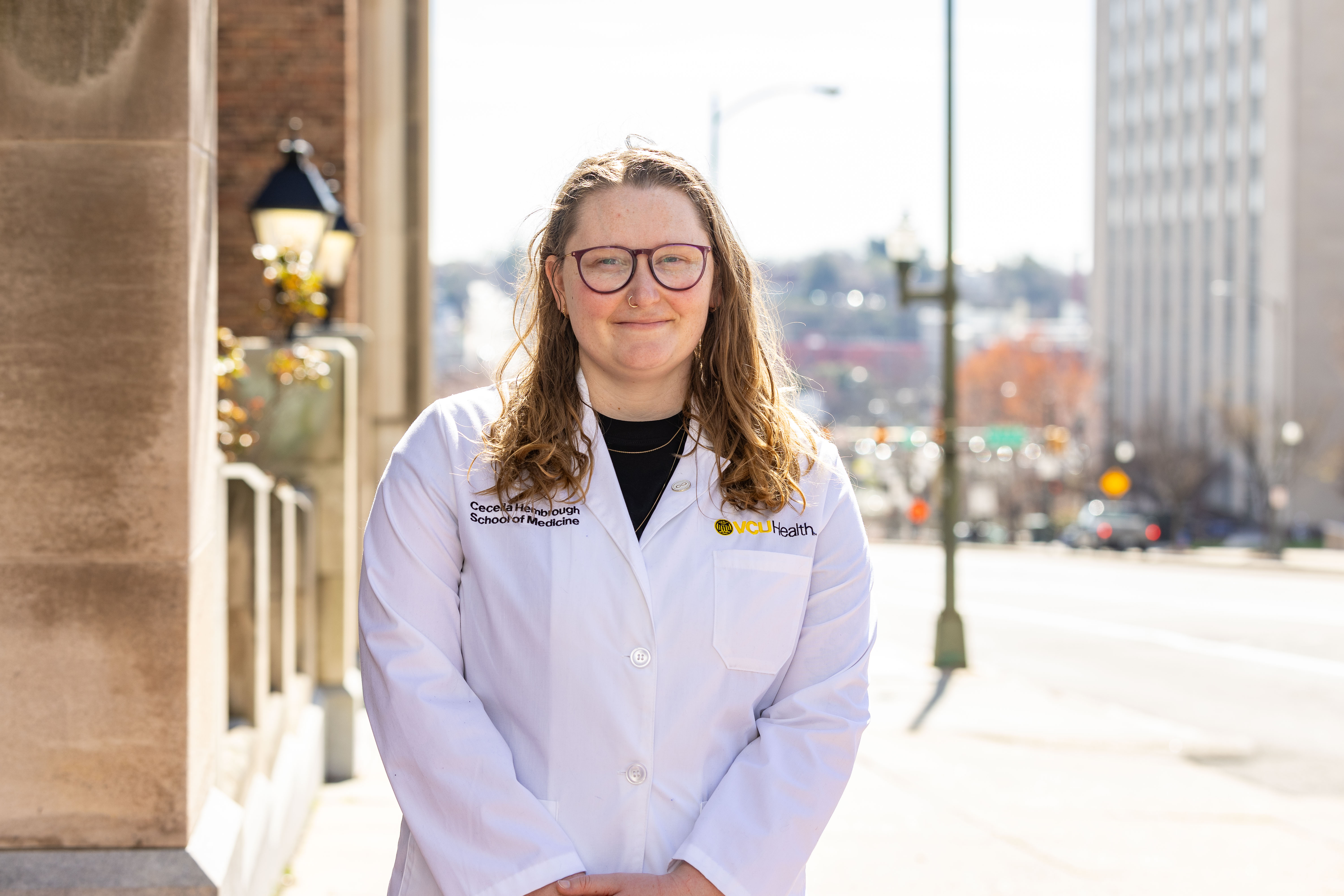First Person: My summer in family medicine research
High marks on Step 1 of the United States Medical Licensing Examination used to be a way for students to differentiate themselves on their residency applications. However, in 2022, Step 1 changed to a pass-fail exam — leaving medical students looking for new ways to stand out from the pack. Many are turning to summer research opportunities to improve their chances in the residency match process, including the Class of 2026's Cecelia Hembrough. In her own words:

The Class of 2026's Cecelia Hembrough (Photo by Skip Rowland)
This story was published in the spring 2024 issue of 12th & Marshall. You can find the current and past issues online.
When I came to medical school, I was determined to never do research again. I had done my time in a wet lab and I did not enjoy it. However, as a student in the International Inner City Rural Preceptorship program, I was urged to apply for a one-month summer research rotation through the Department of Family Medicine.
I applied to work with assistant professor JACQUELINE B. BRITZ, M’17, who leads the Bright Spots Communities research project. She studies communities with lower opioid mortality than expected based on what their risk factors would suggest, and then investigates what those communities are doing right.
Central to my passion for medicine is that no one knows better what a community needs than the community itself. This project wasn’t a group of academics asking a question without considering what would actually benefit the community at large. Dr. Britz was talking to the community to figure out what they were doing and what they needed, and this feels especially important to me as someone interested in rural practice.
I went from being anti-research to reading nonstop about harm reduction principles. I talked to opioid task forces about what they were doing to help counter the overdose epidemic and take care of people who use drugs without stigma or shame.
I was finally able to see a research project that was so purposefully set up to help the community — one that aligned much better with my own values as a future physician.
The most fulfilling part of the rotation was a field trip to the Rappahannock Area Opioid Work Group’s monthly task force meeting. Seeing how the research actually translated to the community gave me a renewed sense of motivation for working on the project, and for research as a whole. This rotation absolutely changed my perspective.